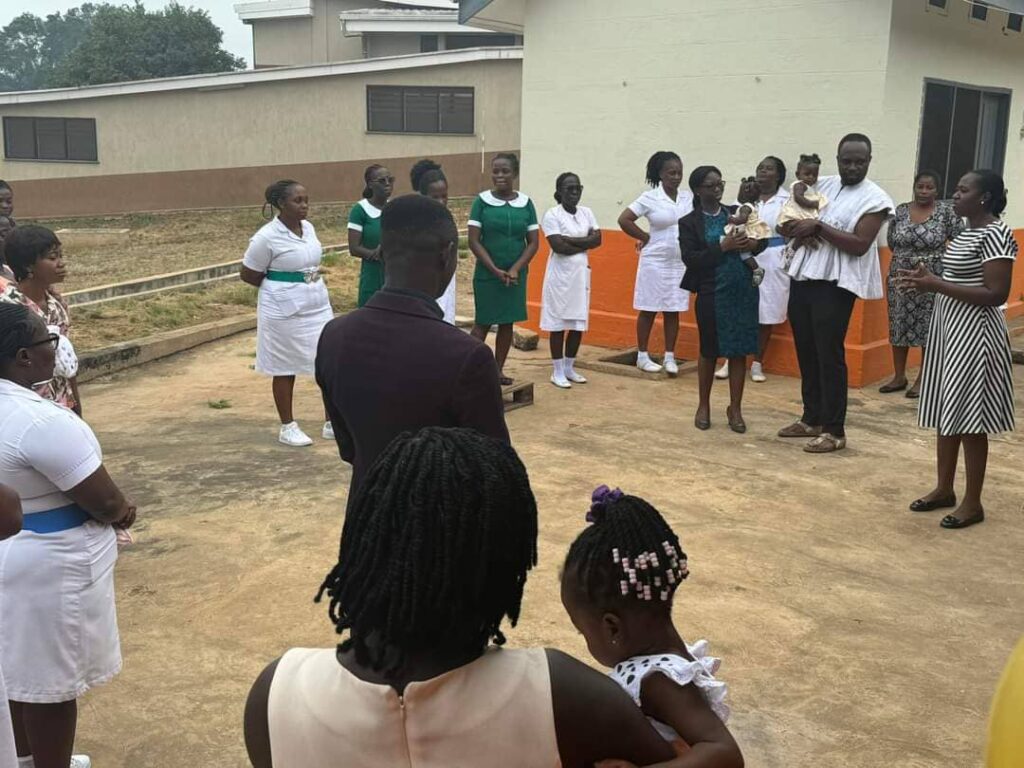Kibi Government Hospital has officially opened a Crèche facility to support its staff by providing childcare during working hours. The commissioning ceremony, held on 16th September 2024, was attended by hospital management, unit heads, parents, and the hospital chaplain.
Speaking at the event, the Medical Superintendent emphasized the significance of the Crèche in improving staff welfare and its potential to enhance productivity.
“This Crèche will allow our staff to focus better on their work, knowing their children are in a safe environment. It will undoubtedly improve job satisfaction and overall productivity,” he stated.
Parents present at the ceremony expressed their appreciation for the initiative.
One of them shared, “This facility brings a huge relief to working parents. We can now perform our duties with peace of mind, knowing our children are being well taken care of.”
The hospital chaplain offered prayers for the new facility, after which the Hospital Administrator led a guided tour of the Crèche.

The tour showcased the various amenities that will cater to the needs of the children, ensuring their safety and comfort.
According to United Nations Educational, Scientific and Cultural Organization(UNESCO), Early childhood care and education (ECCE), covering the period from birth to 8 years old, is crucial because it leverages a time of significant brain development in children. Quality ECCE can set the foundation for good health, nutrition, learning success, social-emotional development, and economic productivity throughout life.
Despite these benefits, ECCE often receives low priority in education policies and investment and may exclude marginalized groups.
Early childhood care and education (ECCE), covering the period from birth to 8 years old, is crucial because it leverages a time of significant brain development in children. Quality ECCE can set the foundation for good health, nutrition, learning success, social-emotional development, and economic productivity throughout life.
Despite these benefits, ECCE often receives low priority in education policies and investment and may exclude marginalized groups.
Meeting SDG 4, which aims for inclusive and quality education for all, requires integrating ECCE. The Transforming Education Summit highlighted this integration to address the equity and relevance crises in education. Significant challenges include fragmented ECCE policies and services, insufficient funding, and a lack of comprehensive data.
Extending the right to education to include ECCE could greatly enhance early learning, yet no international legal framework currently ensures this right.
Addressing these issues is critical for supporting foundational learning and ensuring equitable access to quality early education, essential for preparing children for primary education and beyond. This effort aligns with the objectives of the Tashkent Declaration to transform and improve global ECCE practices.
Source:Mybrytfmonline.com/Obed Ansah




















































